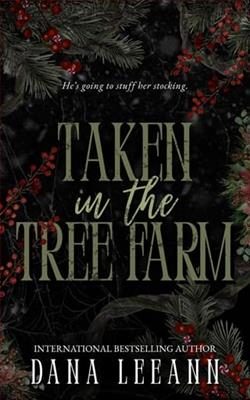Page 7 of Heretics of Dune (Dune 5)
With renewed interest, he returned to his studies of that mysterious planet and its miserable Church of Shai-hulud, the Divided God. Worms. The God Emperor had become those worms! The idea filled Duncan with awe. Perhaps here was something worthy of worship. The thought touched a chord in him. What had driven a man to accept that terrible metamorphosis?
Duncan knew what his guards and the others in the Keep thought about Rakis and the core of priesthood there. Sneering remarks and laughter told it all. Teg said: "We'll probably never know the whole truth of it, but I tell you, lad, that's no religion for a soldier."
Schwangyu capped it: "You are to learn about the Tyrant but you are not to believe in his religion. That is beneath you, contemptible."
In every spare study moment, Duncan pored over whatever the library produced for him: the Holy Book of the Divided God, the Guard Bible, the Orange Catholic Bible and even the Apocrypha. He learned about the long defunct Bureau of the Faith and "The Pearl that IS the Sun of Understanding."
The very idea of the worms fascinated him. Their size! A big one would stretch from one end of the Keep to the other. Men had ridden the pre-Tyrant worms but the Rakian priesthood forbade this now.
He found himself gripped by accounts from the archeological team that had found the Tyrant's primitive no-chamber on Rakis. Dar-es-Balat, the place was called. The reports by Archeologist Hadi Benotto were marked "Suppressed by orders of the Rakian Priesthood." The file number on the accounts from Bene Gesserit Archives was a long one and what Benotto revealed was fascinating.
"A kernel of the God Emperor's awareness in each worm?" he asked Geasa.
"So it's said. And even if true, they are not conscious, not aware. The Tyrant himself said he would enter an endless dream."
Each study session occasioned a special lecture and Bene Gesserit explanations of religion until finally he encountered those accounts called "The Nine Daughters of Siona" and "The Thousand Sons of Idaho."
Confronting Geasa, he demanded: "My name is Duncan Idaho, too. What does that mean?"
Geasa always moved as though standing in the shadow of her failure, her long head bent forward and her watery eyes aimed at the ground. The confrontation occurred near evening in the long hall outside the practice floor. She paled at his question.
When she did not answer, he demanded: "Am I descended from Duncan Idaho?"
"You must ask Schwangyu." Geasa sounded as though the words pained her.
It was a familiar response and it angered him. She meant he would be told something to shut him up, little information in the telling. Schwangyu, however, was more open than expected.
"You carry the authentic blood of Duncan Idaho."
"Who are my parents?"
"They are long dead."
"How did they die?"
"I do not know. We received you as an orphan."
"Then why do people want to harm me?"
"They fear what you may do."
"What is it I may do?"
"Study your lessons. All will be made clear to you in time."
Shut up and study! Another familiar answer.
He obeyed because he had learned to recognize when the doors were closed on him. But now his questing intelligence met other accounts of the Famine Times and the Scattering, the no-chambers and no-ships that could not be traced, not even by the most powerful prescient minds in their universe. Here, he encountered the fact that descendants of Duncan Idaho and Siona, those ancients who had served the Tyrant God Emperor, also were invisible to prophets and prescients. Not even a Guild Steersman deep in melange trance could detect such people. Siona, the accounts told him, was a true-bred Atreides and Duncan Idaho was a ghola.
Ghola?
He probed the library for elaborations on this peculiar word. Ghola. The library produced for him no more than bare-boned accounts: "Gholas: humans grown from a cadaver's cells in Tleilaxu axlotl tanks."
Axlotl tanks?
"A Tleilaxu device for reproducing a living human being from the cells of a cadaver."
"Describe a ghola," he demanded.
"Innocent flesh devoid of its original memories. See Axlotl Tanks."
Duncan had learned to read the silences, the blank places in what the people of the Keep revealed to him. Revelation swept over him. He knew! Only ten and he knew!
I am a ghola.
Late afternoon in the library, all of the esoteric machinery around him faded into a sensory background, and a ten-year-old sat silently before a scanner hugging the knowledge to himself.
I am a ghola!
He could not remember the axlotl tanks where his cells had grown into an infant. His first memories were of Geasa picking him up from his cradle, the alert interest in those adult eyes that had so soon faded into wary lidding.
It was as though the information so grudgingly supplied him by the Keep's people and records had at last defined a central shape: himself.
"Tell me about the Bene Tleilax," he demanded of the library.
"They are a people self-divided into Face Dancers and Masters. Face Dancers are mules, sterile and submissive to the Masters."
Why did they do this to me?
The information machines of the library were suddenly alien and dangerous. He was afraid, not that his questions might meet more blank walls, but that he would receive answers.
Why am I so important to Schwangyu and the others?
He felt that they had wronged him, even Miles Teg and Patrin. Why was it right to take the cells of a human and produce a ghola?
He asked the next question with great hesitation. "Can a ghola ever remember who he was?"
"It can be done."
"How?"
"The psy
chological identity of ghola to original pre-sets certain responses, which can be ignited by trauma."
No answer at all!
"But how?"
Schwangyu intruded at this point, arriving at the library unannounced. So something about his questions had been set to alert her!
"All will be made clear to you in time," she said.
She talked down to him! He sensed the injustice in it, the lack of truthfulness. Something within him said he carried more human wisdom in his unawakened self than the ones who presumed themselves so superior. His hatred of Schwangyu reached a new intensity. She was the personification of all who tantalized him and frustrated his questions.
Now, though, his imagination was on fire. He would recapture his original memories! He felt the truth of this. He would remember his parents, his family, his friends ... his enemies.
He demanded it of Schwangyu: "Did you produce me because of my enemies?"
"You have already learned silence, child," she said. "Rely on that knowledge."
Very well. That's how I will fight you, damned Schwangyu. I will be silent and I will learn. I won't show you how I really feel.
"You know," she said, "I think we're raising a stoic."
She patronized him! He would not be patronized. He would fight them all with silence and watchfulness. Duncan ran from the library and huddled in his room.
In the following months, many things confirmed that he was a ghola. Even a child knew when things around him were extraordinary. He saw other children occasionally beyond the walls, walking along the perimeter road, laughing and calling. He found accounts of children in the library. Adults did not come to those children and engage them in rigorous training of the sort imposed on him. Other children did not have a Reverend Mother Schwangyu to order every smallest aspect of their lives.
His discovery precipitated another change in Duncan's life. Luran Geasa was called away from him and did not return.
She was not supposed to let me know about gholas.
The truth was somewhat more complex, as Schwangyu explained to Lucilla on the observation parapet the day of Lucilla's arrival.
"We knew the inevitable moment would come. He would learn about gholas and ask the pointed questions."
"It was high time a Reverend Mother took over his everyday education. Geasa may have been a mistake."
"Are you questioning my judgment?" Schwangyu snapped.
"Is your judgment so perfect that it may never be questioned?" In Lucilla's soft contralto, the question had the impact of a slap.















